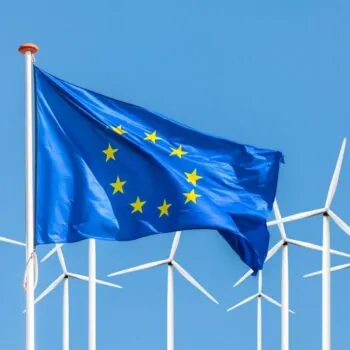BRUSSELS – The European Commission recommended today that the EU adopt a 30% energy saving goal for 2030. They have left the question of whether or not it will be binding open. The recommendation was made as part of the Commission’s long awaited Review of the Energy Efficiency Directive.
Earlier this year, the European Parliament backed a more ambitious 40% goal for 2030 but the Commission justified opting for 30% on the basis that the system costs associated with a more ambitious target were too high.
Ingrid Holmes, Associate Director at E3G said today,
“A 30% target will leave cost-effective energy savings potential untapped. In an era of rising energy prices and concerns about reliance on Russian gas this makes no sense at all.”
Analysis from the Franhofer Institute has shown that a 40% efficiency improvement could be achieved with net financial benefit over the lifetime of the measures implemented as well as delivering wider macro-economic and societal benefits.
The Commission’s own impact assessment shows that a 40% efficiency goal would deliver a fourfold increase in GDP compared to a 30% target, triple the number of jobs and an additional €200 billion in savings on the EU energy import bill. The impact assessment also cautions that leaving efficiency potential untapped will hamper the European economy by limiting productivity, economic output and employment, negatively affect the trade balance of the EU, create uncertainty in the markets given exposure to volatility of energy prices, lead to a loss of budget revenue and make the transition to a low carbon economy more expensive.
Ingrid Holmes went on to say,
“The European Council asked the Commission to develop an energy efficiency framework that made energy efficiency a priority in tackling the EU’s energy import dependence. The Commission has failed in that task. Let’s hope the incoming President and College of Commissioners can make an early start on sorting this mess out.”
The European Council will meet in October to debate the whole 2030 Climate and Energy Package and have publicly committed to making a final decision on the package of targets ahead of the global climate talks in Paris in 2015. There are a number of Member States, including Germany, who are known to support a higher binding efficiency target.
Contact
Ingrid Holmes, Associate Director at E3G, 00 44 (0) 7825 829592 / ingrid.holmes@e3g.org
Notes
- https://ec.europa.eu/energy/efficiency/events/2014_energy_efficiency_communication_en.htm
- BMU and Franhofer ISI Contribution of Energy Efficiency to Climate Protection in the EU in the period up to 2050. https://www.isi.franhofer.de/isi-wAssets/docs/e/de/publikationen/BMU_Policy Paper_20121022.pdf
- https://www.rtcc.org/2014/06/19/seven-eu-countries-demand-binding-energy-efficiency-target/


